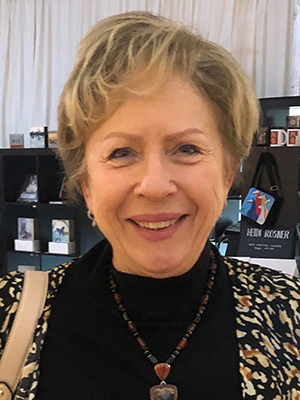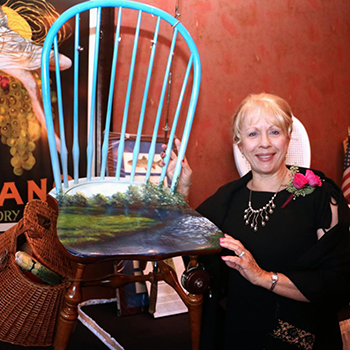 WBCC Involvement
WBCC Involvement
Rare Chair Affair artist (beginning in 2006) and artist mentor
Board Member (2008-13), Vice President (2010-11)
Attended several NBCC National Conferences and three Project Lead seminars
Received an award from the WBCC for work with Rare Chair Affair Survivor Artists
When did you first become a part of the WBCC? What were your reasons for joining the organization?
When I got my diagnosis, I signed up for a mentor. I experienced so much anger, and my mentor suggested I join WBCC, apply to attend the national conference and paint a chair in 2006.
What do you consider the most significant achievements of the WBCC?
The lobbying successes, both in Madison and Washington. It’s inspiring work that made a difference in many lives.
What are the two or three most important contributions you have made to the WBCC?
Painting to help fundraise to keep the mission going.
Participating in advocacy meetings with legislators in Madison and Washington.
Learning from Project Lead so I could pass along credible, science-based information about all cancer, and specifically about breast cancer.
What challenges has the WBCC faced in its history? What challenges do you see the organization facing in the future?
I think a problem in the past was fostering a strong board. Volunteer organizations face this challenge more significantly than not-for-profit organizations with more paid staff. Financial challenges will continue to be a threat.
Who are two or three members of the WBCC who should be recognized as part of the organization’s history? Why are they important?
I know the obvious three will receive many mentions: Kathleen Harris, Dawn Anderson and Bonnie Anderson.
I’d mention Mildred Leigh-Gold for her calm and positive influence which gave me hope in dark days.
Linda Weide for her tireless support, and for steering the Rare Chair Affair.
Katie Corcoran for years of support and taking the Rare Chair reins after Linda passed.
What has your involvement with the WBCC meant to you?
WBCC gave me a place and the space to take a difficult situation and turn it into an opportunity to take action, to give back and to help bring about necessary change. Working on the Rare Chair introduced me to many individuals I would not have met in my regular day-to-day activities. I learned from all of them – about breast cancer, treatments, perspectives and finding hope, even in the darkest days.
Project Lead gave these experiences a national focus, and gave me a good basic understanding of the science of cancer treatment, which I have been able to share with many people.

Jo with her chair at the 2014 Rare Chair Affair
(June 2024)
